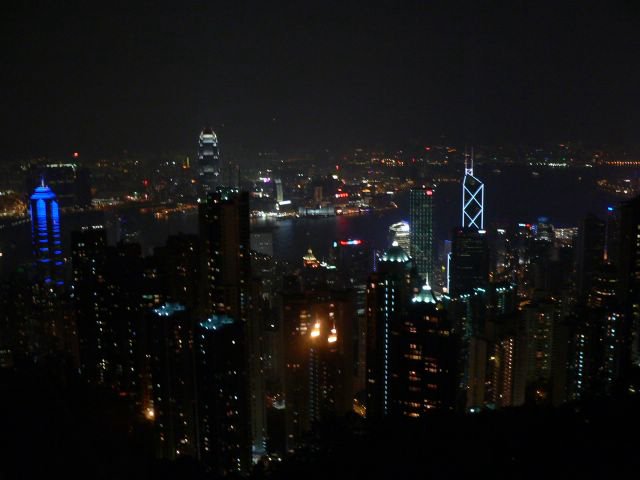 The roundups of the march on Dec. 4th should be done yesterday, but I composed a reaction story of Hong Kong bloggers for the Global Voices in the Berkman Center at Harvard Law School.
The roundups of the march on Dec. 4th should be done yesterday, but I composed a reaction story of Hong Kong bloggers for the Global Voices in the Berkman Center at Harvard Law School.First of all, I added the video clip about Anson Chan joining in the march.
Google Video.
The newspaper in HK today talked a lot about why Anson Chan attended the march in a lofty stance. Some said that she might decide to run for the CE in 2007, some said she cannibalized the fruits of pan-democratic camp, some said she wasn't a very enlightened when she was in office, and some even said that she should also be responsible for the failure of governance and economy both in the colonial and Tong CheeHua's time. The march was that Anson Chan showed her attitude to Beijing most strongly in the wake of her essay named Trust Us in Time magazine in June 2004.
Press also mentioned that Anson Chan once had the highest popularity wehn she was in offfice, even higher than the current favorite of HK people, Donald Tsang. It seems that she will probably replace Tsang, if she can run for the post of CE later. And, some bystanders during the march then joined them when they saw Anson Chan was among the parade. It seemd that Anson Chan had the engough preparation for the march.
When I was interviewing in the march, I heared some people said Anson Chan didn't need to attend the march personally necessarily. They explained that people knew what Anson Chan thought, and that her presence only made trouble for herself. That's a typical and general thought about Chan's acts. They believed Chan just supported the appeal like any other general citizens.
I'm interested in what Anson Chan will do next. Will she emulate Aung San Suu Kyi,who is considered as the democratic hero in Bruma, and got the Nobel Peace Prize in 1991.
Here is an interview record of Anson Chan by PBS (America's public broadcasting corporation) in 1998 below. It seemd that she has been craving for the universal suffrage in 2007 all the time.
PHIL PONCE: You talked about the record turnout for the recent elections, and yet, the majority of the people who cast their votes in the popular vote voted for pro-democracy candidates and some of those candidates-Martin Lee, for example,--are saying that the time is now for immediate one person, one vote.
ANSON CHAN: I think, of course, people in Hong Kong want more democracy. That is, in fact, what they will get in accordance with the timetable for the development of democratic institutions, that is, election to the legislature. In accordance with our basic law, which is our constitution, there is a specifically laid-out timetable to reach the ultimate target of universal suffrage. And so for our next election, which will be in the year 2000, the number of directly-elected seats in the legislature will increase to 24, and in the year 2004, it will be half the legislature that will be returned by popular vote. And in the year 2007, in accordance with that timetable, the people of Hong Kong can decide for themselves whether to move straight away to universal suffrage.

No comments:
Post a Comment